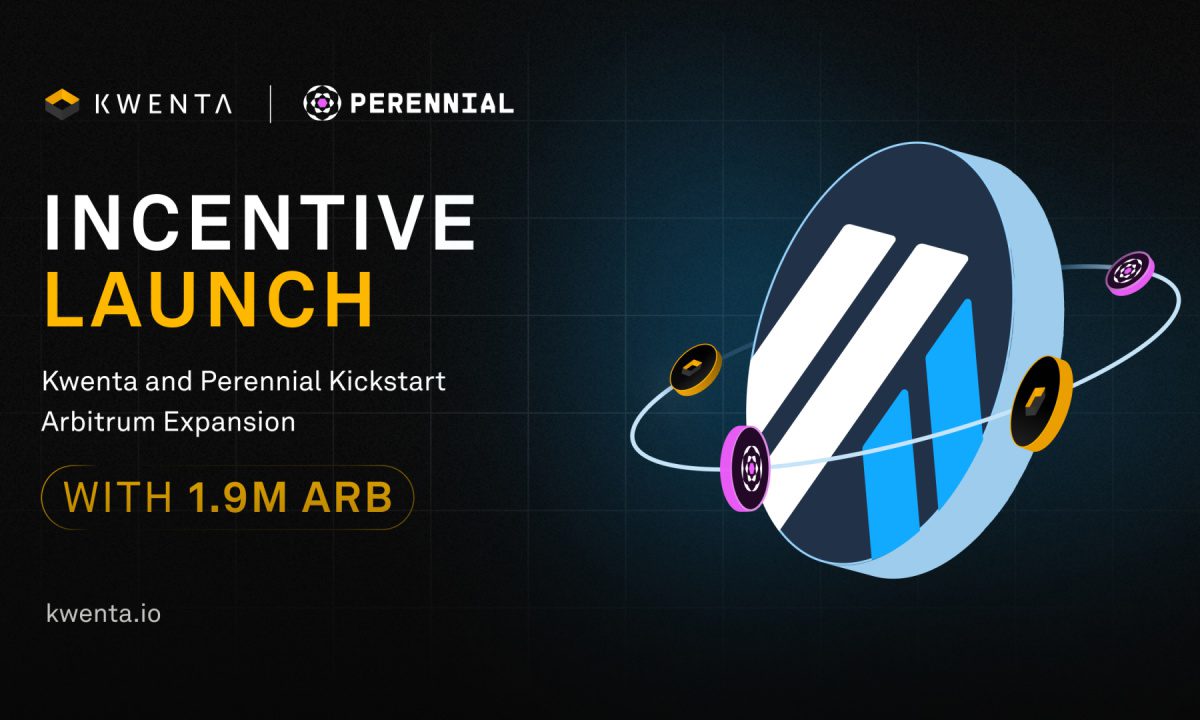Pi Chain Mall: Platform to Support Optimizing the Best Experience of Pi Network Ecosystem
In this Coincu article, we will focus on unraveling the intricacies of the Pi Chain Mall, a pivotal component within the Pi Network ecosystem. We will explore its functionality, its pivotal role in fostering ecological development, and its commitment to ensuring security and trust among its user base.

Overview of Pi Network
What is the Pi Network?
Pi Network is an attempt to simplify accessibility and introduce more people to cryptocurrency through a simple crypto mining and management system. It was officially launched on March 14, 2019, by Nicolas Kokkalis and Chengdiao Fan.
Pi Network offers a mobile mining feature where users can mine Pi coins on their Android and iOS devices using the Pi mobile application. Participation in the mining program was solely by invitation. After installing and setting up the application, users can mine Pi coins on their devices with a single click.

Since its launch, the Pi network has garnered a large social media following and has seen incredible growth in participation, with a reported 33 million members as of 2022.
Members of the Pi network are popularly known as Pioneers, and they can earn Pi coins by playing a number of roles, including running a node on their personal computers, referring new members, or mining Pi coins on their mobile devices.
Read more: Coinbase Review: Top Trading Platform With Many Supported Features
How Pi Network works
Unlike traditional cryptocurrencies that require significant computational power and technical knowledge, Pi Network allows users to mine coins through a simple mobile app.
Upon registration, users activate the mining process within the app, requiring no active participation or complex technical understanding. Each user is limited to one Pi account and one node, ensuring a fair distribution of mining capabilities.

Users access the Node software through their mobile app accounts, ensuring synchronization between both platforms. While the mobile app is used to initiate Pi mining, the desktop interface of the node allows users to monitor their Pi coin balance, engage in chats, and view media content.
A notable aspect of Pi Network is its revenue generation model. As users mine coins, the app displays ads, creating a revenue stream for the creators. This approach provides an incentive for both users and developers to participate actively in the network. During the testing phase, known as Testnet, nodes do not receive mining rewards. Instead, developers aim to gather data to determine the most suitable incentive mechanism for rewarding users.
Milestones of Pi Network
Effective August 1, 2023, a new base mining rate was implemented, marking a monthly adjustment based on the rewards issuance formula unveiled on March 1, 2022.
Fireside Forum Web3
In June 2023, Pi Network launched its Fireside Forum Web3 social platform, a move aimed at fostering community interaction and engagement within the Pi ecosystem.
Additional features
In December of the same year, the platform introduced a decentralized moderation feature, which incentivizes social content moderation through tokenomics, rewarding positive interactions while curbing negative actions.
Further enhancing its utility, the Pi Wallet incorporated a new QR code feature by the end of November, facilitating peer-to-peer local commerce transactions. This addition streamlined the user experience and opened avenues for seamless transactions within the Pi Network community.
PiFest
In a bid to promote Pi-powered commerce, Pi Network organized PiFest from December 6 to 11. Dubbed a “Pi Powered Commerce event,” users were afforded the opportunity to shop at local Pi-integrated businesses by exchanging Pi coins.
The event witnessed participation from individuals across 155 countries and regions, with over 21,000 entries received in the local business survey, underscoring the global reach and growing interest in Pi-powered transactions.
Pi Commerce Hackathon
Building on the momentum generated by PiFest, Pi Network announced the Pi Commerce Hackathon. Scheduled to take place from February 1 to March 3, 2024, the hackathon aims to encourage community participation in creating apps and facilitating the easy location of local businesses accepting Pi coins. The winner of the hackathon is set to be unveiled on Pi Day, celebrated on March 14.

What is Pi Chain Mall E-Commerce Marketplace?
The Pi Chain Mall (PCM) has emerged as a bustling decentralized application (dApp) within the Pi Network ecosystem, offering users a platform to engage in buying, selling, and trading various goods and services using Pi tokens as their primary currency.
Since its inception alongside the Pi Network, PCM has steadily grown in prominence. Notably, PCM secured victory in the inaugural Pi Network Hackathon held in October 2021. Despite fierce competition, PCM clinched the second position in the business app category, trailing only behind Pi Workforce Pool, a marketplace dedicated to job hiring.

Recently, the PCM team took to social media, particularly Twitter, to commemorate their achievements and express gratitude to their community. This celebration underscores PCM’s significant milestones and growing impact within the Pi Network.
How Pi Chain Mall Works
Pi Chain Mall operates on a straightforward premise, offering users a platform to engage in buying and selling goods with ease. The process begins with users creating a profile and connecting it to their Pi Wallet. Unlike some platforms, Pi Chain Mall does not mandate a full Know Your Customer (KYC) process for joining, though this may change as the Pi Network transitions to its open mainnet phase.
Pi Blockexplorer
With a global reach, Pi Chain Mall boasts a diverse user base spanning countries from China to Nigeria. Transactions are frequent and continuous, as evidenced by the activity on the PCM payments smart contract within the Pi Blockexplorer.
Create a Connection With the Pi Network Ecosystem
Operating within the closed mainnet of the Pi Network does impose certain limitations on Pi Chain Mall users. Notably, users are restricted from converting their Pi tokens into fiat currency, and the platform exclusively facilitates Pi transactions. Additionally, users are unable to integrate other financial services or conduct exchanges beyond Pi within the app.
Despite these limitations, the Pi Chain Mall team actively fosters relationships within the broader Pi ecosystem. They maintain strong connections with various projects and collaborate closely with members of the Pi Core Team. Through this collaboration, they can advocate for updates and enhancements to enrich the overall Pi Network experience.
Access Using the Pi Network App or Pi Browser
Accessibility is key for Pi Chain Mall, which is available both as a mobile app and through web browsers. Users can access PCM via the dedicated Pi Network App or through the Pi Browser, ensuring convenience and ease of use for participants across different devices and platforms.
Pi Chain Mall Features
Here are five key features that highlight Pi Chain Mall’s significance in the Pi Network ecosystem:
One of Pi Chain Mall’s standout features is its withdrawal function, which has seen widespread adoption since its relaunch. Over 360,000 Pi withdrawals have been recorded, reflecting the platform’s commitment to providing users with flexibility in managing their digital assets.
Pi Chain Mall recently introduced a payment feature that leverages Pi balance, enabling seamless transactions within the platform. This addition enhances the overall trading experience, offering users convenience and security in their transactions.
To maintain fairness and prevent abuse, Pi Chain Mall has implemented a maximum daily withdrawal limit of 50 Pi per user. This measure ensures an equitable distribution of resources and fosters a healthy trading environment.
At its core, Pi Chain Mall is built to facilitate decentralized trading, allowing users to engage in peer-to-peer transactions without intermediaries. This approach promotes transparency and efficiency, empowering users to transact directly with one another.
Pi Chain Mall prioritizes community engagement through platforms like Telegram, where users can join the PiChain International group to stay informed about updates and developments. This commitment to fostering a supportive community ensures that users have access to assistance and collaboration opportunities.
Pi Chain Mall Highlights
Pi Chain Mall making strides in revolutionizing online shopping experiences while championing sustainability, ecosystem development, and user trust.
Supply Diversity and Convenience
One of Pi Chain Mall’s primary features is its vast array of goods and products, consolidating millions of items into a single platform. This approach streamlines the shopping process for customers, eliminating the need to hop between multiple websites. Vendors benefit from increased visibility and expanded customer reach, making it a win-win situation for both parties involved.
Environmental Commitment
Pi Chain Mall stands out for its commitment to environmental sustainability. It actively promotes eco-friendly packaging practices among its sellers, advocating for the use of recyclable materials and the reduction of packaging waste. By discouraging single-use plastics, the platform significantly reduces the environmental footprint associated with packaging production and disposal.
Furthermore, Pi Chain Mall collaborates with various environmental organizations and initiatives, directing a portion of its profits towards reforestation, conservation, and other ecosystem projects. This strategic partnership not only supports environmental causes but also fosters a sense of corporate responsibility within the Pi Chain Mall community.
In addition to financial contributions, the platform educates its users on the importance of ecosystem development through informative resources, blog posts, and guides. By raising awareness and empowering users with knowledge, Pi Chain Mall promotes responsible consumption habits that align with ecosystem sustainability goals.
Emphasis on Security and Trust
Ensuring a secure and trustworthy environment is paramount for Pi Chain Mall. The platform implements rigorous verification processes for both sellers and buyers, safeguarding transactions and fostering a sense of reliability within the community. By prioritizing security measures, Pi Chain Mall aims to enhance user confidence and facilitate seamless transactions within the Pi Network ecosystem.
Pi Coin (PI)
What is the Pi Coin?
Pi Coin (PI) is the native cryptocurrency of the Pi Network, a groundbreaking blockchain endeavor aimed at democratizing mining for users across desktop and mobile platforms. The ultimate vision is to foster a digital currency for everyday transactions.
Since emerging onto the scene in 2019, the Pi Network has yet to fully launch, leaving the crypto community in a state of divided opinion regarding the legitimacy of Pi Coin.

Named in homage to the mathematical constant π (pi), symbolizing the ratio of a circle’s circumference to its diameter, Pi Coin is rewarded to users who engage in the mining process within the Pi Network ecosystem.
Efforts to solidify the Pi brand are evident, with an application for the registration of the Pi logo as a trademark filed in January 2023. Currently, the application is under review by the U.S. Patent and Trademark Office as of mid-December.
Pi Coin Use Cases
Pi coins serve a dual purpose, allowing holders to cover transaction fees and conduct transactions within various applications and marketplaces integrated into the Pi ecosystem.
Tokenomics
Pi coin supply operates on a unique system guided by network activities, with distribution occurring solely through user rewards. Unlike conventional cryptocurrencies, Pi does not feature an official pre-mine, although participants in the beta mining program retain the ability to transfer their tokens to the mainnet.
Distinctive from many other digital currencies, Pi does not adhere to a fixed total supply model. Instead, each user joining the Pi Network is granted a predetermined amount of Pi coins, which are mined gradually over time. However, this allocation is limited to the first 100 million users on the network, emphasizing a sense of exclusivity.
According to the project’s whitepaper, the mainnet supply model sets a maximum total supply of 100 billion Pi coins, consolidating its commitment to fostering a balanced and sustainable cryptocurrency ecosystem.
Reward System
Users have the opportunity to increase their Pi holdings through a referral system, which rewards them for introducing new members to the Pi cryptocurrency project.
The Pi coin mining protocol further distinguishes itself by earmarking an additional Pi coin for every coin minted as a member or referral reward. This surplus coin serves as compensation for developers contributing to the network’s growth and sustainability.
Conclusion
In today’s digital landscape, characterized by the ubiquitous presence of technology, e-commerce stands as a cornerstone of modern convenience. As consumers increasingly rely on online platforms for their shopping needs, staying abreast of innovative solutions becomes paramount.
Pi Chain Mall is increasingly showing its importance in the Pi Network ecosystem. Hopefully, this article has helped you understand more about the leading platform of the Pi ecosystem.
FAQs about Pi Chain Mall
How do I access Pi Chain Mall?
To gain entry into Pi Chain Mall, individuals must first become members of the Pi Network. This can be achieved by following a straightforward process:
- Download the Pi Network Mobile App: Interested users can download the Pi Network mobile application from their respective app stores. The app is available for both iOS and Android devices.
- Create an Account: Upon downloading the app, users need to create an account by providing basic information and setting up login credentials.
- Complete Registration: After account creation, individuals are required to complete the registration process. This may involve verifying their email address or phone number to authenticate their identity.
What do the fees on Pi Chain Mall include?
Pi Chain Mall operates on a user-friendly fee structure, with no charges levied for utilizing the platform’s services. However, it’s essential to note that while accessing Pi Chain Mall itself incurs no fees, users may encounter nominal transaction fees when conducting purchases or transfers within the platform.
These transaction fees, often minimal in nature, are primarily aimed at facilitating the smooth operation and continuous development of the Pi Network ecosystem, ensuring a sustainable and vibrant environment for all participants.
Is Pi Coin a Scam?
The legitimacy of Pi Coin has been a subject of debate within the cryptocurrency community, fueled by its unavailability for trading on formal exchanges. While some users have accumulated substantial holdings of Pi coins, trading has largely occurred through informal peer-to-peer agreements, with transactions executed when feasible.
In a development that raised eyebrows in December, 2023, several cryptocurrency exchanges, such as HTX, BitMart, and Biconomy, took the unconventional step of listing the price of an unauthorized “Pi IOU.” This move, while shedding light on the demand for Pi Coin, also highlighted the absence of official trading avenues for the cryptocurrency.
Despite these unconventional trading arrangements, the broader question of whether Pi Coin constitutes a scam remains controversial, with proposals highlighting the project’s ambitious goals and unique approach to cryptocurrency distribution. However, skeptics argue that the lack of concrete progress, coupled with the absence of formal exchange listings, raises red flags regarding the coin’s legitimacy.
| DISCLAIMER: The information on this website is provided as general market commentary and does not constitute investment advice. We encourage you to do your own research before investing. |





















